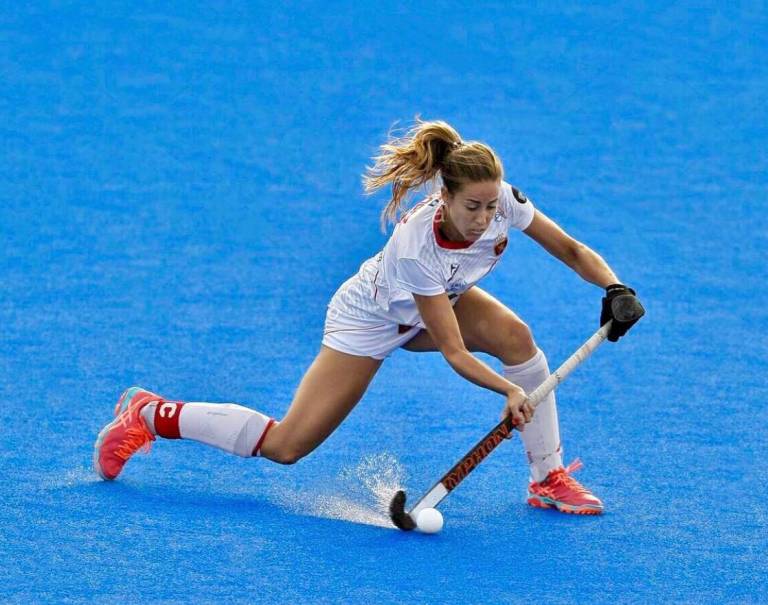Maria Lopez, a player of the Spanish national field hockey team

"The Red Sticks won an Olympic diploma at the last Games, and their achievements include a bronze medal at the 2018 World Championships in London and the 2019 European Championships in Antwerp. These Olympics will undoubtedly be different and unique, but also one of the most exciting ever experienced. Tokyo 2020 will begin on Thursday, July 23, which could be a return to normalcy. This is how Maria Lopez, a player of the Spanish national field hockey team, defines it, and she assures us that it will help us escape from this terrible year and a half.
Some games during the pandemic
The 31-year-old Asturian player has a degree in business administration and management and has been combining her business career with her sporting life for years. Her international achievements, perseverance, and dedication led her to participate in the Hoofdklasse in 2017, the Dutch field hockey league, one of the best in the world. In the Netherlands, hockey is far from being a minority sport.
Lopez argues that in terms of recognition and appreciation, there is no doubt that the Netherlands is light years away from Spain. "We need the media to support us and be our spokesperson," says the captain. In his opinion, communication is one of the steps in Spain to achieve greater visibility, especially for women's and minority sports, making watching their games more accessible. "I think there is still a lot to be done," says Lopez.
Despite recently finishing fourth at the European Championships in Amsterdam, the captain firmly believes that more lessons can be learned from defeats and that it will strengthen the Red Stickers ahead of the Tokyo event. "The whole audience is foreign, without family and friends, it will be noticed," he emphasizes. Lopez comments that one of the main reasons why these Games are different is that there will be no presence of his own people. Covid-19 requires strict measures that remain in place throughout the season.
However, despite all the adversity, the player is surprised at how successful the season has been in this regard. "I didn't believe it would end well," he says. The field hockey league went off without a hitch, and the Queen's Cup and Final Four were played. It's an outdoor sport, and that's in its favor. With the exception of some games postponed due to close contacts, the league has moved forward. New to hockey betting? Our guide on "All About Hockey Betting Rules for Beginners" provides essential tips and rules to get you started. Check out this link - https://eishockey-magazin.de/rund-um-die-eishockey-wettregeln-fuer-die-einsteiger/archives/173638 for valuable insights into the world of hockey betting.
Sponsorship and material support
The pandemic crisis has affected everyone, including sponsors. The captain comments on how the coronavirus has caused some of them to temporarily stop working. "I had shares of a fairly powerful brand that lasted until the end of 2020 and were paralyzed in March," he explains. However, most sponsors continue, trusting and supporting the athletes, in addition to the Olympics, which allows them to resume their activities. Maria Lopez is an ambassador for projects such as SomosDAN, which provides opportunities for athletes so that companies and sponsors can find them more easily. In her case, participating in the Dutch league made brands value her more.
See also: ONLINE GAMBLING: MORE CLARITY FOR PLAYERS WITH THE NEW STATE GAMBLING AGREEMENT?
The federation and clubs are a big economic pillar for field hockey players. Both at the club level, which is paid for by the club itself, and at the national team level, which is all paid for by the Federation. Players do not pay for travel and accommodation, and sports equipment is usually provided free of charge by sponsors. This provides economic relief for a material that Lopez says is expensive. "We probably use two or three clubs a year, which cost between 200 and 350 euros. Imagine what we would spend on average per year on sticks alone," he emphasizes. "In addition to the sticks, we have to add hockey shoes, which are special - from 70 to 120 euros -; shin guards; mouth guards; sportswear and gloves, in the end, everything is expensive. "Fortunately, we don't have to pay anything at all."



